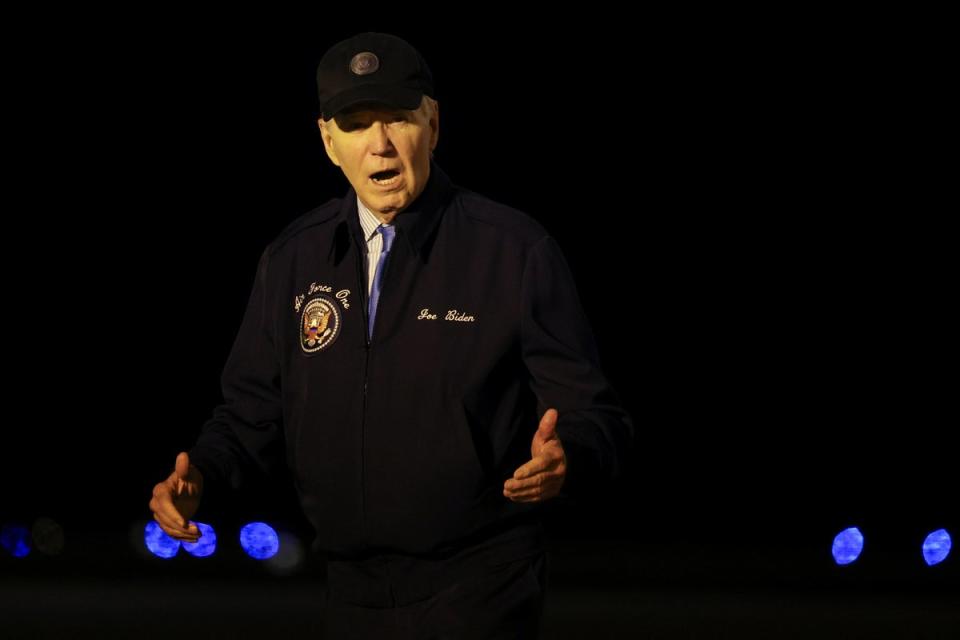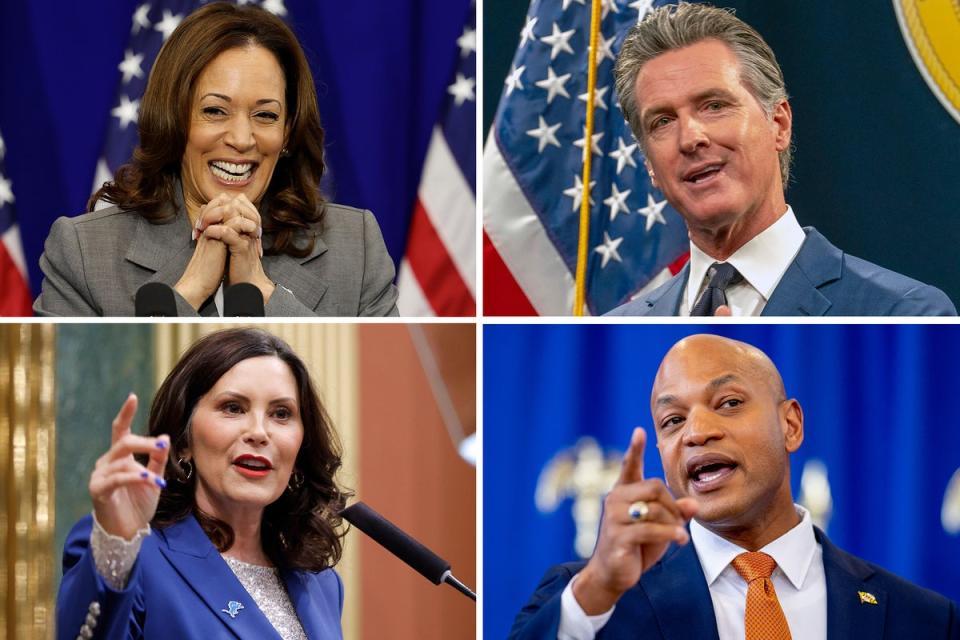What is a blitz primary?
The term “blitz primary” has been flying around Democratic circles as concerns about President Joe Biden’s fitness to serve a second term refuse to die down in the wake of his disastrous debate performance against Donald Trump last month.
Biden, who remains publicly committed to running, has been reportedly hearing the case in private for his departure. Several top Democrats believe that Biden could now leave the race as soon as this weekend, according to Axios.
The president is currently self-isolating with Covid-19 at his beach house in Rehoboth, Delaware as he faces a drop in the polls and increasing pressure to leave the race.
Leading Democrats, some friends, and major donors believe Biden would be unable to defeat Trump, that he can’t change the public’s views of his age, and that he would drag down Democrats’ efforts of keeping the Senate and taking back the House, Axios noted.

Biden is reportedly being told that if he stays in the race, Trump may win in a landslide and take down his legacy.
Part of the conversations is former president Barack Obama, who is reported to believe that Biden should seriously reconsider his decision to stay in the race. He has been fielding calls from concerned Democrats, including from former House Speaker Nancy Pelosi.
So if Biden chooses to leave the race - what is a blitz primary and how would it work?
A blitz primary, as proposed by Rosa Brooks and Ted Dintersmith, a Georgetown University law professor and venture capitalist respectively, simply refers to a swiftly organized selection process to find a replacement candidate for the party’s presidential ticket in the incumbent’s stead.
Biden won the conventional Democratic primaries at a canter earlier this year, barely challenged by anyone. However, he did not escape the process untainted, suffering a huge protest vote in Michigan in late February when 100,000 people marked “uncommitted” on their ballot papers over his handling of events in the Middle East.
Any primary at this stage would, by necessity, need to be executed in time for the Democratic National Convention in Chicago – beginning on August 19 - to give its hypothetical winner time to make an impression on the national stage before facing Trump on November 5.
That’s the case in Brooks and Dintersmith’s version, which they first outlined in a memo on July 2 sent to wealthy party donors and members of the Biden administration and campaign.
Their scheme, first reported by Semafor, would require Biden to voluntarily announce his decision to step aside, with the full support of Vice President Kamala Harris.
His doing so would trigger a new primary process in which a fresh slate of contenders would be given a matter of days to put themselves forward as candidates before delegates to the Chicago convention whittle the list down to just six names.

The six candidates would then begin running “positive-only” campaigns in the month ahead of the party gathering, which would be punctuated by weekly forums at which they would be interviewed by politically-sympathetic celebrities, with Taylor Swift, Oprah Winfrey, Michelle Obama, and Stephen Colbert among the names touted in the memo, a gambit intended to generate as much social media excitement as possible.
Finally, with Biden’s 3,896 delegates released, they would be free to cast their votes ahead of the convention, ranking the candidates in order of preference, with the winner finally announced to much fanfare at the convention’s finale – perhaps after an elimination process to build suspense and engagement.
Brooks and Dintersmith are not the only ones to envision an idea of this sort. The influential Democratic congressman Jim Clyburn also entertained the idea of a “mini-primary” being staged should Biden announce he was stepping down when asked what would happen in that scenario by CNN.
The trouble with the duo’s inventive and imaginative proposal is that it hinges on the president’s whole-hearted cooperation and, so far, he has refused to meekly bow out, stubbornly insisting instead that he is going nowhere.
Biden said as much at an Independence Day speech at the White House, in his reset interview on ABC with George Stephanopoulos, on the campaign trail in Wisconsin and Pennsylvania, in a letter to congressional Democrats, and again in a phone-in with MSNBC’s Morning Joe.
But reports have trickled out this week that the president appears to be opening up to the notion that his time may have passed even as his campaign steadfastly claims he’s staying in the race.


